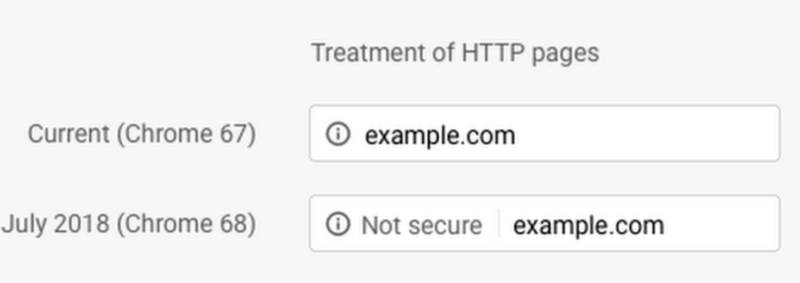Nearly half of users have a bad reaction to ‘not secure’ browser warning, survey finds
With few exceptions, brands suffered diminished credibility in UK study.

Web users are put off by seeing a “not secure” message attached to a website, agency John Cabot has found after it surveyed 1,324 people in the UK. But we’re not just talking about knee-jerk negative reactions. In fact, the survey found the flag affects both behavior and brand perceptions.
Fear and loathing. Since 2014, HTTPS has been a ranking signal for Google. And since July 2018, Google has marked HTTP sites in Chrome “not secure., However, the survey found that 47 percent of respondents “knew roughly what the warning meant.” An equivalent number (46 percent) said that they would not enter their names or financial information into a site that was not secure. And 64 percent of that group said they would leave the site “instantly.”
Other fears or concerns included:
- Their device was exposed to a virus — 14 percent
- They had arrived on a fake version of the intended site — 12 percent
- The content was “unreliable and not fact-checked” — 9 percent
- Being signed up for spam email — 8.4 percent
The survey also found many people feared that their search histories would be sold.
Brand perception affected. With some exceptions, brand perceptions were negatively impacted by the “not secure” warning. UK retailer John Lewis didn’t suffer as much negative sentiment as other known brands, suggesting that in a limited number of cases brand strength or loyalty can overcome the impact of the not secure warning.
But the attitudes and concerns above suggest conversions are being lost from exposure to the warning.
Why you should care. The results above imply that half of survey population was not as concerned about the warning. So one could take a “half empty, half full” view of the study. But that would be a mistake. The combination of HTTPS as a ranking factor and the adverse reactions of consumers to seeing the not secure warning create an imperative to adopt HTTPS encryption. There’s really no reason to not go HTTPS.
John Cabot observed that, despite this, “there are still millions of websites with the ‘not secure’ warning.”
Contributing authors are invited to create content for Search Engine Land and are chosen for their expertise and contribution to the search community. Our contributors work under the oversight of the editorial staff and contributions are checked for quality and relevance to our readers. The opinions they express are their own.
Related stories
New on Search Engine Land